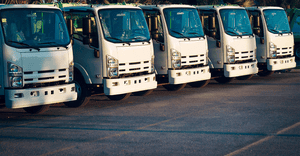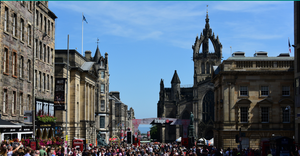Bower App Plays on Bottle Deposit Concept to Capture Multiple Packaging Types
Swedish green tech startup Bower has an app enabling consumers to get paid to recycle; learn how and where to recycle; and discover the environmental impact of their efforts.

Swedish green tech startup Bower has an app enabling consumers to get paid to recycle; learn how and where to recycle; and discover the environmental impact of their efforts.
GPS technology built into the tool, which works with Android and Ios devices, directs users to the nearest participating recycling station to drop off packages and scan their barcodes. The app allows them to earn points on their “deposits” redeemable for cash, discounts at participating retailers, and or to apply toward donations to charities.
At the same time, consumers discover how much carbon emissions they save, with calculations made using a model of the Swedish Recycling Institute, based on weight and material type. The stats are made tangible, so consumers get it: “When you recycle ‘X’ number of packages you save the equivalent in energy spent running a vacuum cleaner for ‘Y’ hours. Or you cut the carbon emissions equal to those generated by driving or flying a specified distance.”
Brands pay to tap into the app. For them the tool is a way to work toward their sustainability goals by seeing that their spent packaging is recovered; and they learn how much of their own material is recycled through the platform. But it also serves as a channel for them to engage with consumers to gain marketing intel leveraged to try and grow their businesses.
Founded by siblings Suwar Mert and Berfin Roza Mert,
Bower has sold its service to about 130 brands with Dove, Capri-Sun, Hellmann's, Unilever, L’Oréal, and Procter & Gamble among some of the big ones. Its 380,000 users recycle more than 2 million packages each month, mostly plastic. And they have cut more than 1,600 tons of carbon dioxide (CO2) emissions since September 2022 alone.
The company is named for the Australian Bower bird, known to bring trash to its nest and sort it into different colors to attract mates.
The Mert’s chose the name, Suwar says, because “We want humans to also think of end-of-life material as having value rather than simply as trash.
We have a great deposit system in the Nordics, mainly for PET, which adds value to this packaging; thus more gets recycled. You do not see many [PET] containers on the streets. So, we are applying that deposit concept to all packages,” he says.
Bower has raised more than $5.5 million in capital to scale since March 2022 and operates throughout the Nordics, more recently entering the U.K. and working on a pilot in the U.S. with Zespri, a large kiwi manufacturer.
But figuring out the value proposition to drive that growth took some vetting.
“What we learned is that only applying a solution around sustainability is not good enough. Companies won’t pay if it does not add business value,” Suwar says.
This realization hit home after he first pitched a reusable bag model to grocery stores.
“I thought that [grocers] would buy into a solution to solve the problem with plastic bags. But they make a profit selling them, so they were not keen to changing to reusable bags.”
That’s when he pivoted to the strategy of recovering more packaging types. But he also decided to design the Bower platform to address the revenue-generating piece he had to fill in to sell the idea. Businesses can use the tool to gain insights to increase sales, as it collects and shares data points around purchasing decisions. Surveys and product rating functions enable brands to learn customers’ thoughts on, and satisfaction with, their products.
For consumers, the financial incentives have proven a big draw. But attracting users, then getting them to continue to recycle, has entailed adding more carrots.
“Consumers who don’t sort and recycle don’t do it because they don’t know how and because it’s not fun,” Suwar says.
A gaming component was added, intended to make recycling less of a chore and keep people engaged. They can set up groups and compete with friends and family or co-workers, aiming to be the one that recycles the most.
The educational component has been important too. When consumers scan products, they get instructions on how to sort – for instance telling them if they should remove caps or lids and sort them as plastic and sort the rest as glass. And they learn why to recycle.
“We’ve seen through surveys that many users start for the financial incentives. But once they see their impact, they begin to become more sustainability conscious. They begin to care about recycling,” Suwar says.
The consumer education component has had value for businesses too.
Brands are spending millions on ways to ensure packaging is recyclable, with no guarantees it’s actually collected and processed.
That is where Bower comes in with what Suwar calls a “missing puzzle piece” … helping make sure weighty investments in R&D to ramp up recycling capabilities are not wasted. And that the material ends up in collection bins, properly separated.
Brands can see how much of what material is recycled and can leverage that data to engage with the public, incorporating it in their sustainability reports or their social media campaigns.
Nestlé Purina, one of the brands that uses Bower’s app, aims to have 100 percent reusable or recyclable packaging across its portfolio by 2025, says Alexandra Jaegers, corporate brand and communications manager at Nestlé Purina.
“But, beyond transforming our packaging, we also want to support our consumers to sort correctly. We know this to be a challenge. That is why we were very happy to start the partnership with Bower,” she says.
Nestlé Purina customers can also donate through the platform to charities that support animal welfare.
“Supporting pets in need is one of our commitments, and something really close to our hearts [especially] in this time when we see an increase of pets up for adoption.
Therefore, it was natural to add Djurens Vänner, Dyrebeskyttelsen, and SEY to our Bower partnership. We know our consumers also share our passion of doing more of what matters, and together we truly make a difference,” Jaegers says.
Suwar believes technology like Bower will become increasingly important with legislation, especially in the E.U., pushing brands to take greater responsibility for their spent packaging.
For now, these enterprises are typically most focused on packaging from the perspective of ensuring it protects products, but not as much on taking responsibility for the material at the end of its life. As they are expected to play a greater role in managing the downstream flow, capabilities like data collection and analysis, including to track trends, educating consumers on how to sort, and motivating them to do it will be key to their success, Suwar surmises.
About the Author(s)
You May Also Like




